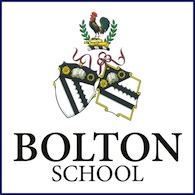One of the last few assemblies of summer term saw the Head of Modern Foreign Languages talking about the need to value language learning in schools. She outlined the two common arguments used: first the utility of understanding language and especially culture for business in an increasingly global world and also the fact that the skills built through language learning are easily transferred and improve learning across a whole range of subjects.
And yet, without any doubt, language learning is in decline in most state schools. The facts speak for themselves. 49% of pupils nationally study one language at GCSE. All do at Bolton School. Less than 10% study two languages, where nearly one in three do at Bolton. HMC (large independent schools) schools account for 20% of Spanish entries and 18% of French and German entries at A level. 7% of pupils attend an independent school. It is clear languages are healthy in independent schools, with strong teaching and excellent exam outcomes, as well as a curriculum model that allows language as a specialism, with the space for one, two or three GCSE languages for some.
So what might help, from the experiences of the independent sector, to reverse the national decline on languages? Three areas come to mind.
First, there is motivation and attitude. Winning the argument for languages requires a clear focus on the cultural as well as the linguistic aspects of the work. It may well be most people speak English (or more accurately American). Google translate might cover most things. But it is appreciating that language helps you understand culture that makes the subject important far more than perhaps being able to order in on that next trip to a Spanish report. To help this for several years we have hosted a Year 11 languages day at Bolton School, open to local state school pupils to promote A level language study. For the same reason we are a Confucius School for Mandarin, hosting experiences for local primary schools.
Second there are curriculum models and knowing what matters. An individual school canÆt really do much about this but the HMC schools can lobby on behalf of all from a position of strength. League tables that make it better for to study a language canÆt be right. Nor can exam marking that makes the subjects far more difficult than other options. We have lobbied on both and seen success in addressing the marking at A level which will help students in all schools.
Finally good teachers are needed. We are pleased at Bolton to be part of the National MFL teacher training scheme launched by Nic Gibb, to be able to do our part in making sure there is a decent supply of good language teachers.

Leave a Reply